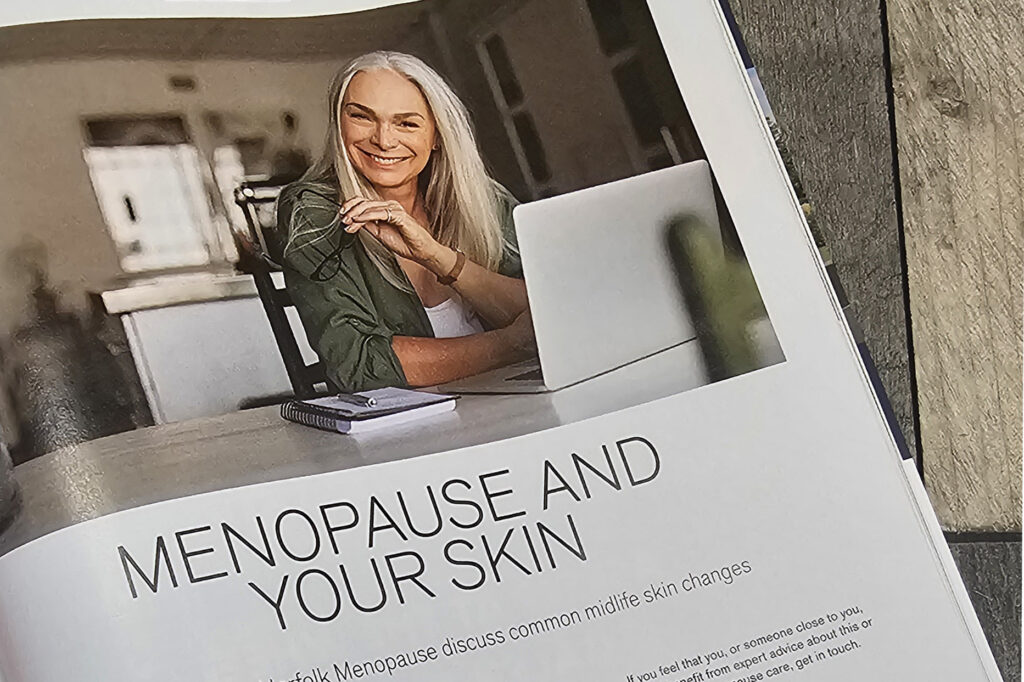Norfolk Magazine
The experts at Norfolk Menopause discuss common midlife skin changes

“Parched, wrinkled and a bit sad….”
Is how Davina described her skin in her Menopausing book.
The team at Norfolk Menopause frequently hear from women who are feeling self-conscious due to changes in their facial skin during menopause transition. Why is this and what can be done to help?
In simple terms there are three cause of skin ageing; genetic (thank or blame your parents!) environmental (mainly UV exposure, smoking and diet) and hormonal. Oestrogen has a key role in keeping skin in good condition. Collagen, the major support protein in our skin, drops by 30% in the first five years of menopause and after that by about 2% annually. Loss of collagen leads to wrinkles and a sunken appearance of skin. Elastin, which plays a crucial role in skin flexibility, also decreases with oestrogen loss which can lead to a slack or saggy appearance and increased wrinkling. The hydration of the skin reduces as naturally occurring fatty substances including ceramides and hyaluronic acid decline with oestrogen loss. And some women can be troubled by midlife acne due to an increased ratio of testosterone to oestrogen.
Our key message about skin products is that you don’t need to spend a fortune! Here are some easy tips;
- Avoid soap and foaming skin cleaners which can dry the skin.
- Wear high factor UV protection daily.
- Moisturise twice daily with a light moisturiser that does not clog.
- A hyaluronic/ceramide serum can be used after cleanser and before moisturiser.
- Retinols can help support collagen production by boosting cell renewal
- For acne a gentle cleanser containing salicylic acid can help.
A diet rich in antioxidants can help reduce the sun damage – think ‘eating the rainbow’! Controlling your blood sugar is also important; blood sugar spikes can increase inflammation and increase sebum production. Keep well hydrated and avoid too much caffeine. Some women swear by collagen supplements though the evidence base for this is limited.
Oestrogen replacement has shown positive effects on skin in clinical studies. Put simply, HRT can reduce and reverse menopausal skin ageing. This makes sense given oestrogen’s effect on supporting collagen production, maintaining skin thickness, maintaining elasticity, and increasing hydration. However, Norfolk Menopause want to emphasise that HRT should not be used for skin benefits alone. A careful, individualised discussion around benefits and risks should always be carried out.
If you feel that you, or someone close to you, could benefit from expert advice about this or any area of menopause care get in touch! Have a look at www.nofolkmenopause.co.uk

Dr. Emily Cary is a GP specialising in women’s health and menopause care. Certified by the British Menopause Society, she provides personalised treatment plans, including guidance on hormone replacement therapy. Dr. Cary is dedicated to helping women through every stage of the menopause journey.

